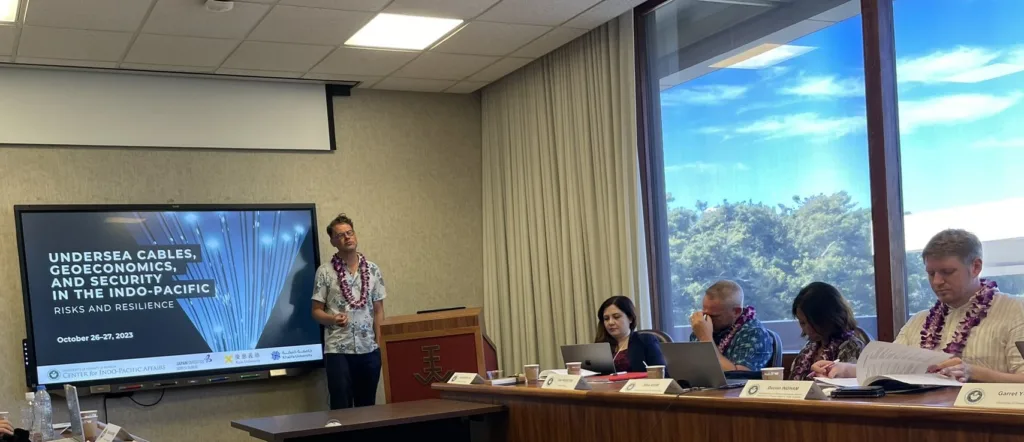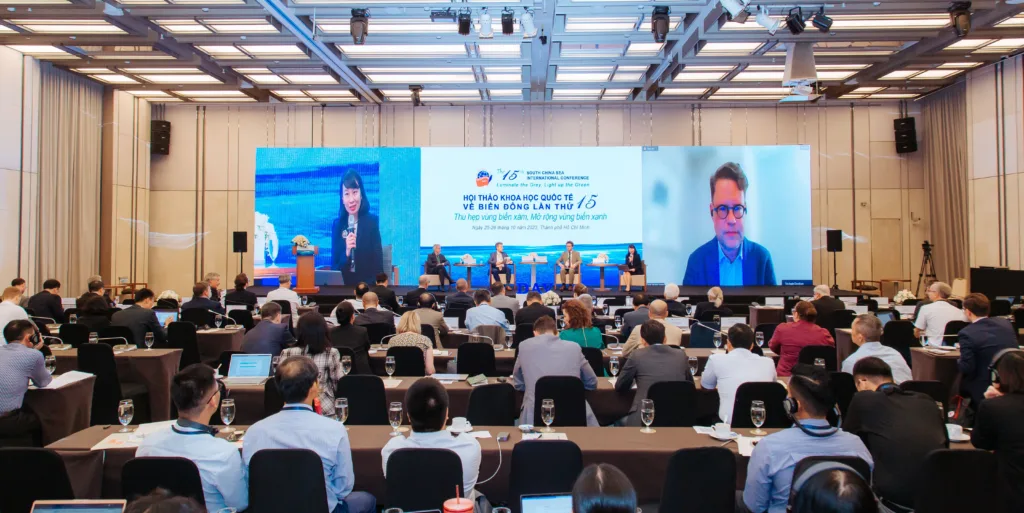While the global attention for the oceans continues to be unprecedented, maritime security and critical maritime infrastructure protection lack an institutional home within the United Nations system. While different UN agencies deal with aspects of the agenda, the debate is dispersed and lacks a holistic outlook. This includes the International Maritime Organization, the UN Office on Drugs and Crime, the Food and Agricultural Organization, the UN Environment Programme, the UN Office for Disaster Risk Reduction or the UN Conference on Trade and Development. Maritime security has also been high on the agenda of the UN Security Council. This risks global fragmentation and the question of the relation between regional and global ocean governance continues to be unsettled.
On November 9th I had the pleasure to discuss with UN bodies in Geneva how this situation can be addressed.

